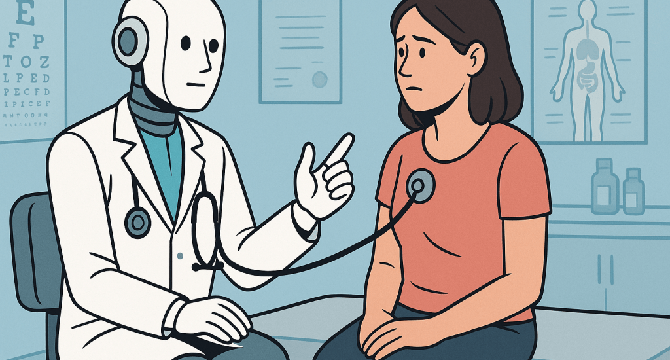VentureBeat
1d
195

Image Credit: VentureBeat
Just add humans: Oxford medical study underscores the missing link in chatbot testing
- A University of Oxford study raises concerns about the effectiveness of medical advice chatbots, showing that humans performed poorly when assisted by large language models (LLMs) in diagnosing medical conditions.
- Participants using LLMs identified relevant conditions less consistently than those in a control group who self-diagnosed, highlighting issues with human-technology interaction.
- Despite LLMs providing correct information, participants often provided incomplete details or misinterpreted prompts, leading to incorrect self-diagnoses and actions.
- The study demonstrates that testing LLMs solely on standard measures, like medical licensing exams, may not reflect their real-world performance in interacting with humans.
- Simulated participants interacting with LLMs performed better than humans, suggesting that LLMs may interact more effectively with other AI models than with humans.
- User experience specialist Nathalie Volkheimer emphasizes the importance of understanding the audience and customer experience before deploying LLMs as chatbots.
- Volkheimer stresses the need for well-curated training materials to make chatbots useful and warns blaming users for poor interactions is not a constructive approach.
- The study urges AI engineers and designers to test LLMs with human interactions rather than relying solely on standardized benchmarks to avoid misjudging their real-world capabilities.
- The discrepancy in performance between humans and simulated participants using LLMs highlights the complexities of human-technology interactions in chatbot applications.
- Human participants often failed to follow the recommendations provided by LLMs, showcasing the challenges in translating LLM medical knowledge into practical self-diagnoses.
- The study serves as a critical reminder for AI developers to evaluate LLMs in real-life scenarios with human users to accurately assess their performance and usability.
Read Full Article
11 Likes
For uninterrupted reading, download the app